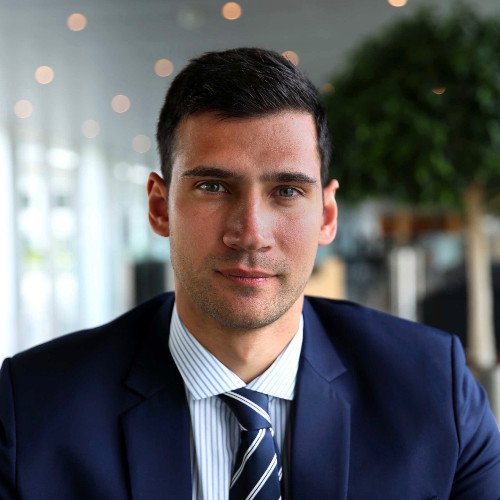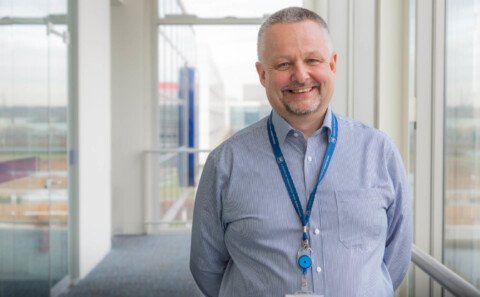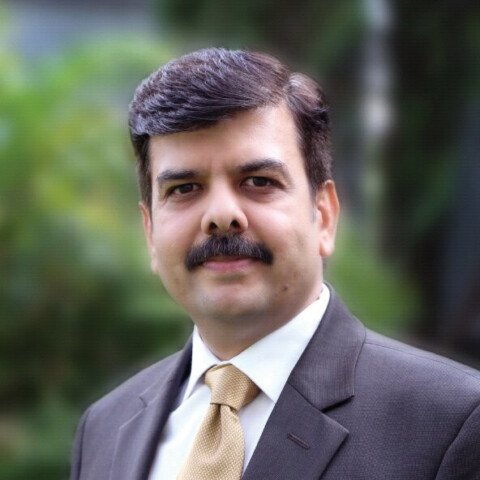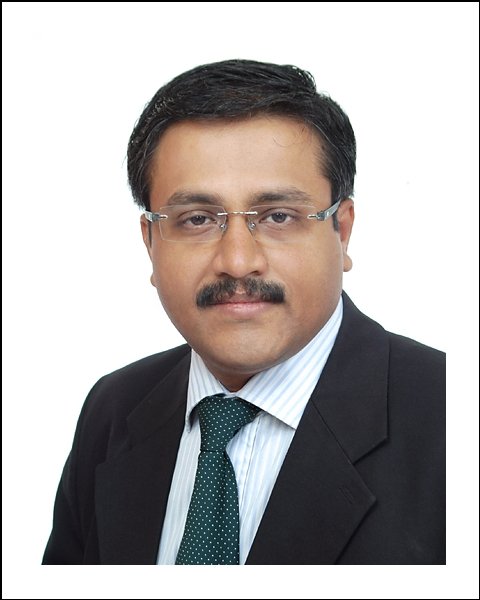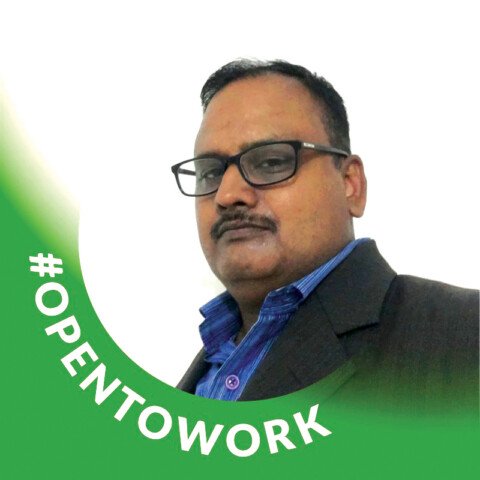There is need for a unified approach to pharma logistics, especially for COVID-19 vaccine distribution, which the world’s biggest shipping and integrated logistics company can support with its largest ocean network and flexible warehousing and distribution capacities spread across global markets, coupled with knowledge competence and capabilities of dedicated teams comprising over 80,000 personnel, operating in 130 countries. In an exclusive interaction, Hristo Petkov, Global Vertical Head of Pharmaceuticals & Healthcare at AP Moller – Maersk, reveals to Upamanyu Borah, that have already embarked on the mission to provide cost-effective, scalable and proven technology-based solutions that can go all the way to enable industry-leading innovative pharma logistics services for a growing world. Testimony to this is their recent agreement to enable the efficient worldwide distribution of COVAXX’s COVID-19 vaccine.
As the pharma distribution chain becomes increasing complex, what is your value proposition to help clients meet their requirements? Apart from a wide sea network what is your second most important resource?
We aim to provide reliability across our supply chain with seamless shipping solutions, both by land and sea that are tailored to our customer needs, from pick-up to final delivery.
We have taken steps to meet the market demands and have introduced 24/7 monitoring via Remote Container Management (RCM) for Pharmaceuticals, developed an internal Quality Management System (QMS) to address and improve quality concerns (GDP certification), and trained our regional reefer specialists to consult with our pharma and healthcare customers on best practices and right approaches; all this paired with our state-of-the-art reefer fleet and operational capabilities. When it comes to transporting pharmaceutical cargo, we want to be a partner our customers can trust.
As a major contributor globally for logistics and supply chain developments, could you elaborate on how the increase in complexity of healthcare supply chains has driven a need for holistic solutions?
Pharmaceutical companies are looking for a partner who can provide the full range of logistics solutions across geographies so they can focus on what matters, their core business of producing life-improving medication; in today’s case, the much anticipated COVID-19 vaccine.
The pharmaceutical industry is in the midst of enormous change. As the world’s population ages, providing people easy access to healthcare and medication has become a key responsibility. Precision medicine, customised to the needs of a single patient, is gaining momentum. Big brands are fighting the problem of counterfeit drugs, compounded by the rise of online retailers. And companies around the world are riding the wave of consolidation with mergers and acquisitions.
These changes add new layers of complexity to pharma supply chains which in itself is seeking transformation. The ideal logistics partner is no longer the local provider, but a global player who can respond to demand, provide structural flexibility, ensure overall visibility, constantly improve results, and most importantly, build risk-based models.
What are some of the top-notch services you are currently offering your customers in the healthcare and pharmaceutical industry?
We are aiming to provide our customers with services that give them peace of mind when it comes to an integrated solution in cold chain logistics. What this means is that we want to take care of every single detail that come as a part of the supply chain. These include the following:
- Transparency and visibility through Captain Peter monitoring offered with the state-of-the-art reefer fleet
- Additional 24/7 hyper-care monitoring through RCM for pharmaceuticals
- Special operational capabilities for Pharmaceuticals (vessel stowage and optimisation of processes)
- Adopted Quality Assurance (QA) approach and Quality Management System (QMS) to address and improve quality
- Best-in-class reefer/pharmaceuticals specialist to consult our customer on best practices and Corrective and Preventive Actions(CAPA) approach
- Booking management and coordination
- Visibility and performance monitoring dashboards through MyMaersk
What do you see as the most crucial differentiators for Big Pharma companies when it comes to choosing their outsourcing partners?
Pharma and healthcare company‘s cold chains have high levels of complexity and are unique in their own ways. They want to mitigate risk and unpredictability at any cost to maintain the integrity of their products. They want transparency, control, and flexibility, in order to ensure the safe and timely distribution of their products to the patients. Our position of global container logistics integrator puts us in this position as an asset owner who is able to control the assets in a operationally excellent way, supplemented by our expertise and compliance for the transportation of pharma and healthcare.
As data allows for more complexities, facilitating global sourcing and allowing for more real-time information, what are some of the ways that information is changing the way the supply chain is managed or viewed?
Real-time visibility and enhanced data can drive continuous improvements in the supply chain and help risk mitigation. We are looking at a Supply Chain as a Service concept that will allow pharma and healthcare companies to get better insights into their supply chain, for example, improve packaging throughout the supply chain and save cost while increasing reliability. This will limit product and operational waste, while boosting the overall supply chain performance. Altogether this will improve the overarching needs for quality and compliance while saving a lot of cost and optimising end-to-end processes.
Building the infrastructure for projects like the Mszczonow pharmaceutical warehouse is a massive undertaking. What were the main areas of focus when conceiving the second facility to ensure it would be optimally tailored to meet the specific logistic demands of the heathcare industry?
The facility is a testimony to our strong expertise, competence and experience based on current long-term collaboration (15+ years) with pharmaceuticals companies. It is equipped with a modern, state-of-the-art temperature controlling system that ensures safety of sensitive cargo. In addition, it offers repacking capabilities, as well as professional transportation services in different temperature ranges (ambient, cold, liquid nitrogen, dry ice) based on a validated Transport Management System.
The facility is carbon neutral, bolstered by photovoltaic energy solutions which provide a total of ca. 600 MWh annually. To a large extent, the new building will also be powered by renewable energy, thereby ensuring its sustainability.
You have already made an eye-catching agreement to enable efficient worldwide distribution of COVAXX’s COVID-19 vaccine. Do you envision replicating a similar deal with potential clients in India?
We are constantly looking at opportunities where we can utilise our capabilities from one region or area to another and sharing knowledge and data to enable trade. We will be happy to support and match our capabilities if there is a need from the market.
Is consolidation the only way forward or companies such as Maersk can still make it alone? How can we lean on the ecosystem to improve the resilience of the sector during periods of disruption?
Considering the scale and capabilities, Maersk can ensure a stable serving offering to its customer base. We will continue to develop within the pharma and healthcare space, backed up by our strong global performance. The complexity in the healthcare supply chain is immense, therefore we will explore synergies with the existing ecosystem and not focus on offering 100% owned services based on our assets at all times.
We are seeing an increase in pharmaceutical companies using India as a logistics hub for the Asian region. How do you see these developments, considering the country’s maritime transport network?
India has great capabilities, know-how and capacity into the pharma and healthcare industry. One can only expect to see future growth in this market based on a model that has proven to work. India’s ambitions are also in lines of this growth, supported by a well-developed ocean network.
What would be the scenario of the overall pharma logistics business by 2025 and beyond? How would it compare to other emerging cargo products and specialised logistics services that Maersk offers?
The pharma and healthcare vertical is relatively new within Maersk. We are on an ambitious growth track, and by 2025, we expect to be able to take a bigger share of the global logistics market in pharma and healthcare and be able to position ourselves as a niche integrator, leveraging our know-how in the industry and capabilities in ocean and air freight.
Apart from all that making the buzz, could you provide us with a preview of any upcoming Maersk innovation that will change the way pharma logistics business is being conducted?
Overall, we are leveraging out integrator capacity to offer a single point of contact to our customers on a global level. We are strengthening our ocean product offering, quality assurance compliance as well as establishing our air freight product and strong sub-contracting capabilities. We are investing and partnering strong in technology. One of these platforms is based on blockchain solutions- TradeLens which allows us to digitise and optimise customer supply chains, manage inventory by linking demand to supply and create a true Supply Chain as a Service approach in the pharma and healthcare industry.



